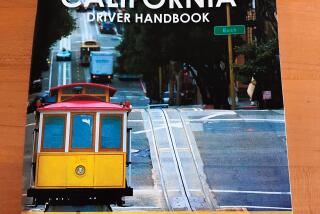Employers Can Ask Questions About Education but Not Age
- Share via
Q: Even though I apply for professional-level jobs, most places ask what years I graduated from high school, college, etc.
Obviously, if I put down that I graduated in 1974, they know I am over 45. How can this be legal? If I change jobs again, how should I handle that question? It’s an easy way for an employer to discriminate.
--J.A., Orange
A: Although it’s not illegal to ask questions that may reveal an applicant’s age, the Equal Employment Opportunity Commission’s regulations indicate that such questions will be closely scrutinized to determine if there is a legitimate business need for the information that does not amount to age discrimination.
For example, an employer that conducts background checks to verify educational credentials would have a legitimate need for high school and college graduation dates, although it might be better to request dates of graduation after a tentative offer of employment has been extended.
If an employer does not verify educational information, however, there would not appear to be any legitimate reason for asking for graduation dates. Employers do have a right, in any event, to require applicants to state whether they have graduated from high school, college or other schooling. In an era in which embellishment and outright lying on resumes are common, employers have a legitimate interest in requiring applicants to certify on their job applications that the educational background (as well as employment history and other information) provided is correct.
--James J. McDonald Jr.
Attorney, Fisher & Phillips
Labor law instructor, UC Irvine
Tanker Driver Is Not Entitled to Overtime
Q: My husband has been working as a tanker driver transporting gasoline and diesel for almost three years. An average workday varies from 10 to 12 hours, and on occasion it can be up to 14 hours.
He has never received overtime pay because his employer says tanker drivers are exempt from the overtime law. Is this true?
--M.A., Alhambra
A: Unless your husband is covered by a union contract requiring overtime premiums, his employer is correct and he is not entitled to overtime pay.
Drivers of tankers or other rigs with more than two axles are exempt from state overtime requirements, as are drivers of larger two-axle trucks. The federal overtime law also does not apply to your husband because it specifically exempts truck drivers whose work is regulated by the U.S. Department of Transportation. Although your husband may not be entitled to overtime, the Department of Transportation has limited the number of hours he can legally work. The current rule permits drivers to be behind the wheel up to 15 hours over a 24-hour period. This rule was written in 1935, modified in 1937 and last revised in 1962 by the now-defunct Interstate Commerce Commission.
--Joseph L. Paller Jr.
Union, employee attorney
Gilbert & Sackman
*
If you have a question, please mail it to Shop Talk, Los Angeles Times, P.O. Box 2008, Costa Mesa, CA 92626; dictate it to (714) 966-7873; or e-mail it to shoptalk@latimes.com. Include your initials and hometown. The Shop Talk column is designed to answer questions of general interest. It should not be construed as legal advice. Recent Shop Talk columns are available at https://www.latimes.com/shoptalk.
More to Read
Inside the business of entertainment
The Wide Shot brings you news, analysis and insights on everything from streaming wars to production — and what it all means for the future.
You may occasionally receive promotional content from the Los Angeles Times.










